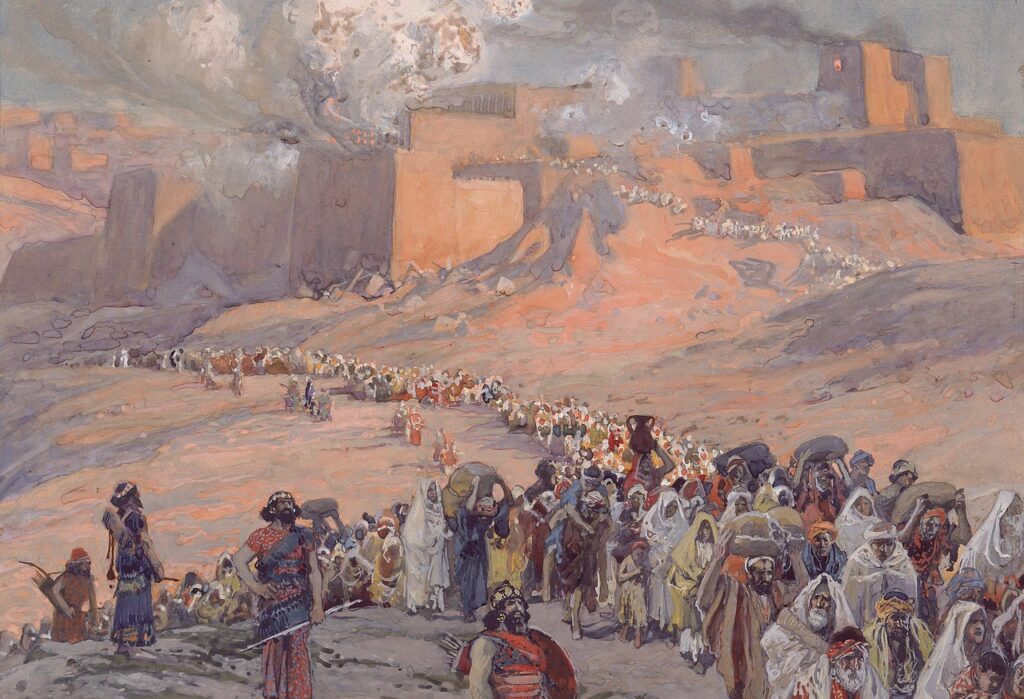
The Psalm 83 War is a significant prophetic event mentioned in the Bible, specifically in Psalm 83. This war is believed to involve a coalition of nations that come together against Israel. Understanding its implications can shed light on contemporary geopolitical dynamics and the enduring relevance of biblical prophecies in today’s world.
Understanding Psalm 83
Psalm 83 is a unique chapter in the Bible, often viewed as a prayer or lament. It speaks of various nations uniting against Israel, seeking to erase their name and identity. The psalmist calls upon God to intervene, asking for divine protection against these adversaries. This scripture illustrates not only the historical tensions faced by Israel but also the enduring conflict that has persisted through the ages.
The significance of Psalm 83 stems from its portrayal of Israel’s struggles and the prophetic implications of the nations mentioned. The psalm lists specific groups that are believed to represent modern nations hostile towards Israel. As such, it serves as a lens through which one can analyze the present-day geopolitical landscape in the Middle East.
The Nations Involved

In Psalm 83, several nations are named, including Edom, Moab, and the inhabitants of Tyre. These groups are often interpreted as representing various contemporary nations and entities that oppose Israel. Understanding who these nations are and their historical context can provide insight into the ongoing hostilities in the region.
For instance, Edom is traditionally associated with the descendants of Esau, while Moab is linked to the descendants of Lot. Tyre represents the ancient Phoenician city, which was known for its trade and maritime power. Each of these nations had historical grievances against Israel, which can be seen as a reflection of the modern-day tensions that exist in the region, including the tensions with Palestinian groups and neighboring Arab nations.
The Prophetic Nature of the Psalm
Many believers see Psalm 83 as a prophetic text that predicts a future conflict involving Israel. The idea is that the coalition of nations described in the psalm will rise against Israel once again, similar to past conflicts. This perspective is rooted in the belief that biblical prophecy often has layers of fulfillment, and the events described in ancient texts can resonate with current events.
The significance of viewing Psalm 83 as prophetic lies in its potential to inform our understanding of future events. Religious scholars and theologians often analyze current geopolitical tensions through the lens of this psalm, suggesting that the ongoing hostilities might be fulfilling the predictions made in this ancient text. This interpretation encourages believers to remain vigilant and hopeful, trusting in divine protection and intervention.
Historical Context of Psalm 83

To fully grasp the significance of the Psalm 83 War, it is essential to explore the historical context in which it was written. The psalm is attributed to Asaph, a musician and prophet during the time of King David. At this time, Israel faced numerous threats from surrounding nations. These threats were not only military but also cultural and religious, as neighboring nations worshiped different gods and often sought to influence Israel.
The historical backdrop of ongoing conflicts provides depth to the psalm’s message. Understanding the relationships between Israel and its neighbors during ancient times helps to contextualize the urgency of the psalmist’s plea for help. It highlights the perpetual struggle for survival that Israel faced, which resonates with the current realities of the region today.
Modern-Day Implications
The concept of the Psalm 83 War has significant implications for modern geopolitics, particularly in the context of Israel’s relationships with its neighbors. The ongoing conflicts and tensions in the Middle East can be viewed through the lens of this biblical prophecy. Many contemporary events, including wars, uprisings, and diplomatic negotiations, echo the sentiments expressed in the psalm.
For instance, the rise of militant groups and their hostility towards Israel can be seen as a manifestation of the coalition described in Psalm 83. This perspective encourages a deeper examination of how ancient prophecies might inform our understanding of current conflicts. It invites believers and scholars alike to consider the timeless nature of biblical teachings and their relevance in today’s world.
The Role of Faith in Understanding Conflicts

Faith plays a crucial role in how individuals and communities interpret conflicts like those hinted at in Psalm 83. For many believers, faith provides a framework for understanding the struggles faced by Israel and the hope for eventual peace. This lens can foster resilience and a sense of purpose in the face of adversity.
Moreover, faith can act as a unifying force among people who share similar beliefs. The collective understanding of Psalm 83 and its implications can galvanize communities in prayer, advocacy, and support for Israel. This sense of solidarity can be vital in promoting peace and reconciliation in a region fraught with division and hostility.
Conclusion
The significance of the Psalm 83 War lies not only in its historical context but also in its ongoing relevance to modern geopolitics and faith. As nations continue to grapple with their relationships with Israel, the themes of unity, conflict, and divine intervention resonate deeply. Understanding Psalm 83 allows individuals to reflect on the complexities of these issues and the enduring nature of biblical prophecy.
In a world where tensions persist, the lessons gleaned from this psalm can inspire hope and resilience. By recognizing the historical and prophetic dimensions of the Psalm 83 War, believers and scholars can navigate contemporary conflicts with a deeper understanding of their roots and potential resolutions.
FAQs
What are the main themes of Psalm 83?
The main themes of Psalm 83 include unity among nations against Israel, the plea for divine intervention, and the historical struggles faced by the people of Israel. The psalm serves as a lament for the perceived threats against Israel’s identity and existence.
How does Psalm 83 relate to current events in the Middle East?
Psalm 83 is often interpreted as a prophetic warning about ongoing conflicts in the Middle East. Many scholars and believers see parallels between the nations described in the psalm and contemporary entities that oppose Israel, suggesting a continuation of ancient hostilities.
What should believers take away from the Psalm 83 War?
Believers can draw strength and hope from the Psalm 83 War, as it emphasizes the importance of faith and divine protection in times of conflict. It encourages individuals to remain steadfast in their beliefs and to pray for peace and resolution in the region.
Are there any notable historical events that reflect the themes of Psalm 83?
Yes, various historical events, such as the Arab-Israeli wars and ongoing tensions between Israel and its neighbors, reflect the themes of Psalm 83. These events showcase the enduring nature of conflict and the relevance of the psalm’s message across time.
How can understanding Psalm 83 contribute to interfaith dialogue?
Understanding Psalm 83 can enhance interfaith dialogue by fostering discussions about shared histories, beliefs, and the quest for peace. It can encourage respectful conversations about differing perspectives on Israel and its neighbors, promoting mutual understanding and reconciliation.






